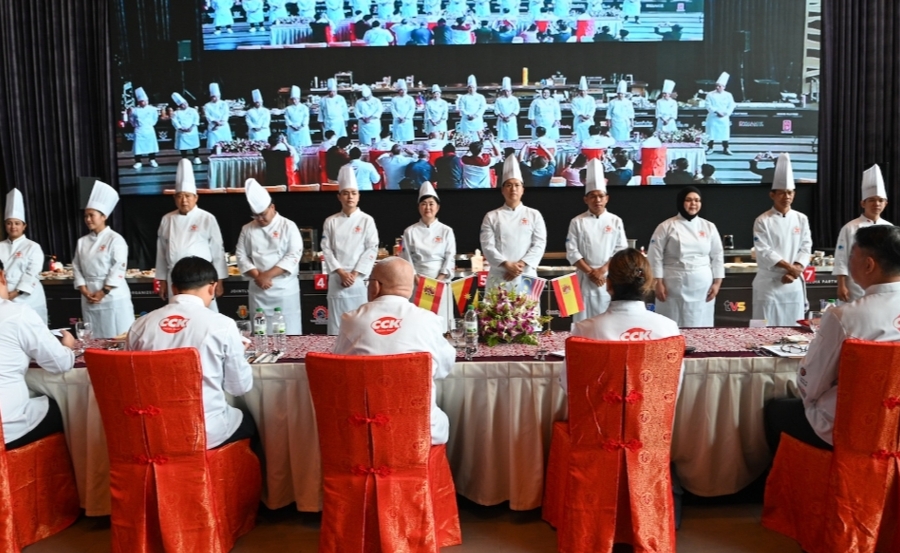Hospitality Leaders Don’t Need an AI Strategy – They Need a Strategy Powered by AI
Bangkok, Thailand, May 11, 2025 / TRAVELINDEX / The recent TDM C-Suite Travel Trade Global Summit 2025, held at the Montien Hotel Surawong, brought together the brightest minds in travel and hospitality for a full day of expert panels, bold insights, and next-gen strategies. Organized by Travel Daily Media, the summit attracted senior leaders from Thailand and across the ASEAN region, offering a 360° look at the challenges—and opportunities—reshaping global tourism.
Setting the Stage: Transformation Over Transaction
The summit opened with a keynote by Jaruwan Suwannasat, Chief Information Officer, Thailand Convention and Exhibition Bureau (TCEB), who introduced the concept of Return on Experience (ROX); Measuring Transformation, Not Just Transactions. In a world where travelers seek meaning, creativity, and emotional connection, ROX offers a new lens for measuring tourism success. Suwannasat emphasized that 83% of Gen Z travelers are willing to pay a premium for authentic and meaningful experiences (WTTC and SKIFT Research, 2024).
Google Keynote at TDM Summit: AI Will Reshape Hospitality—Get on the Bus!
“AI isn’t coming—it’s already here,” declared Mr. Aditip “Term” Panupong, Industry Head of Strategic Partnerships at Google, in a powerful keynote presentation.
In his talk, Thailand Hospitality: Redefining Experiences with AI, Panupong tackled the complexities of modern travel planning. Backed by Google’s latest research, he highlighted that: 3 in 5 travelers don’t know where they want to go when they start researching and they spend an average of 303 minutes across dozens of queries—such as “cheap hotels Bangkok,” “things to do in Pattaya,” and “Is the Grand Palace hot?”—about 45 days before booking.
The message was clear: travelers are overwhelmed, and brands must meet them earlier in the decision funnel. Panupong outlined three critical stages to address:
Motivation – Understanding why people travel
Touchpoints – Knowing how to reach them
Preferences – Discovering how to win them over
Citing Google data, he emphasized the emotional core of travel. In Asia-Pacific: 42% of travelers say they travel to heal from daily stress, 35% travel as a reward and 33% seek a sense of adventure.
“Travel is not just a destination—it’s a reward,” he said, underscoring that travelers today prioritize value and trust over the lowest price. In Thailand alone, 67% of travelers say they’re willing to splurge on luxury experiences that deliver memorable moments. And the modern trip is not one-dimensional. Each journey now fulfills an average of 4.7 motivations, and travelers engage in 3.8 distinct experiences per trip. As search demand shifts dramatically from domestic to international, the message for hospitality brands is clear: experience-led design matters more than ever.
From Panupong’s presentation, it’s clear that travellers prioritize value and trust over the cheapest deal and that travellers value different things at different stages of the travel experience.
However, Panupong warned of a disconnect within organizations, sharing; 85% of industry leaders are enthusiastic about AI, 95% see value in AI-driven workflows but only 10% have involved five or more departments in their AI strategy.
He dubbed this the FOMO vs. FOGI gap—Fear of Missing Out versus Fear of Getting In. Many businesses feel stuck, citing lack of infrastructure (55%), insufficient internal support (51%), or unclear ROI (48%) as obstacles to meaningful AI integration.
Panupong identified five trends where AI is already reshaping travel and hospitality:
1. Multimodal AI – Leveraging context and multiple inputs
2. AI Agents – Evolving from chatbots to multi-agent collaboration
3. Assistive Search – The next frontier, transforming how knowledge is discovered
4. AI Powered Customer Experience – Creating seamless, hyper-personalized guest journeys
5. AI Security – Strengthening systems as adoption accelerates
His solution? AI-powered personalization at scale, enabled by:
- Turning data into value through customer-first design
- Using unified tools to drive commerce and conversion
- Enhancing the guest journey at every stage
- Operating more efficiently and sustainably
He wrapped his keynote with a clear message: AI is no longer optional—it’s essential. With today’s travelers expecting hyper-personalized experiences and meaningful value, the brands that will thrive are those that understand motivations and act with data-driven precision.
Panupong encouraged the audience to explore tools like Google Trends, Destination Insights with Google, and Think with Google to anticipate shifting behavior and capture emerging demand—especially as Asia-Pacific travel pivots toward international markets.
And with a smile and a nod to urgency, he left the room with this final push:
“Get on the AI bus! It’s not going to slow down, and you won’t want to miss it.”
A Summit That Delivered
From bold predictions to actionable frameworks, the TDM C-Suite Summit was more than a networking event—it was a strategic reset. Expertly curated and packed with relevance, the summit reflected the industry’s readiness to move from recovery to reinvention.
The message from the TDM C-Suite Travel Trade Global Summit 2025 was clear: AI is no longer a buzzword—it’s a business imperative. As travel brands navigate rising guest expectations, complex decision journeys, and a shift from domestic to international demand, the need for action is urgent.
The Future of Hospitality Isn’t an AI Strategy—It’s Strategy Powered by AI
Across every panel and keynote, one insight kept surfacing: It’s not about having an AI strategy—it’s about using AI to power your strategy. The future of hospitality belongs to those who move early, move smart, and design around meaningful experiences.







